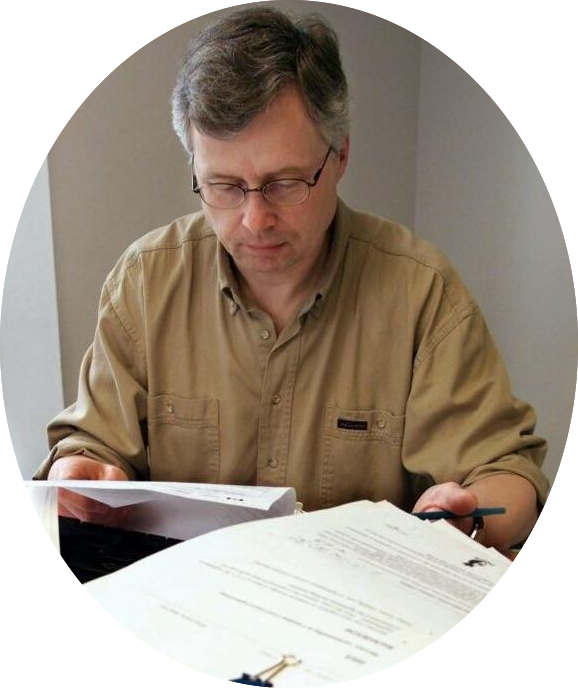A pioneer of freedom of information
A pioneer of freedom of information in Canada died last week, little known beyond a tribe of hard-core practitioners.
Michael Anderson Dagg (1948-2022) passed away at the Ottawa Civic hospital on Sept. 1, age 74. A stroke in 2013 put him in a wheelchair. He did not survive a second one.
Mike was a happy warrior in the troubled trenches of the federal access-to-information system. Beginning in the 1990s, he established himself as a private information broker, filing requests for government data on behalf of businesses, unions and ordinary citizens.
He was also a tireless advocate for better legislation, a gadfly pestering departments who failed to adhere to the law. Among his achievements is a landmark Supreme Court of Canada ruling in 1997, Dagg v. Canada, in which he represented himself and which continues to be cited today. That a non-lawyer shepherded this complex case all the way to the high court is stunning.
Mike was born in the company town of Arvida (now part of Saguenay), in northern Quebec, where his father worked for Alcan. His was a forceps delivery, which left him with a limp. Idyllic summers were spent at the family cottage at nearby Lac Saint-Jean. He graduated in 1969 from Ottawa’s Carleton University with a BA (History), then completed a Master of Library Science degree at McGill University in Montreal. He worked as a librarian in Saint John, N.B.; for the Native Council of Canada; and for the Ottawa Citizen, among others. He then pivoted to consultancy work, brokering information he obtained under the Access to Information Act. His business card boasted: “We find infogold for our clients.”
Mike also helped build the Canadian Access and Privacy Association (CAPA), an Ottawa-based non-profit consisting largely of access-to-information officers working inside the federal government. Mike’s was a fresh voice from outside the public service. He became president for a time, and remained active in organizing annual CAPA conferences.
I first connected with Mike in the 1990s when he cold-called me at my Canadian Press job in Halifax, to discuss creating an access-to-information users group. There were many other calls over the years – story tips, commiserating over FOI – and at least one pub night. He invited me to speak at several CAPA conferences. I occasionally bumped into him at my local grocery store. We were neighbours in Ottawa.
Mike was always upbeat with me. He loved to dump on government departments, but with humour and spirit. His 2013 stroke, which severely limited his mobility, did little to dampen his cheer. He always smiled mischievously as he skewered bureaucratic opacity and red tape. Mind you, he would talk endlessly, so you needed an exit strategy for these conversations. To the end of his life, he remained a fearless pitbull when it came to challenging government.
Mike pitched many stories to me. Two of them made splashes, one about a dubious Fisheries and Oceans contract that required the contractor not to put anything in writing. Another story, about an 80-year delay for a response to a request to Library and Archives, still resonates.
Mike had other interests. He defended whistleblowers. He supported Indigenous rights, and befriended a local Indigenous family. He was involved with Chinese ex-patriot groups, funding a Carleton University graduate scholarship to support Canada-China studies. He carried out political work with his local Conservative riding association. He could be cantankerous with his family.
Bruce Campbell is an author and activist who grew up with Mike in Arvida, and has stayed in touch. He remembers Mike as “an interesting mélange of someone who was awkward with one-on-one relationships but loved to organize events, whether political or social. … He was at the centre of organizing at least three high school reunions back in the Saguenay region from 1981 to 2014.”
Lawyer Michel Drapeau, Canada’s eminence grise on access-to-information legislation, recalls his exceptional skills. “Mike’s quiet but persistent and industrious efforts in this particular field are sans pareil,” he said. Mike’s legal work, for instance, included successful cases fought at the Federal Court of Appeal and at the Federal Court, he notes – in addition to that landmark 1997 Supreme Court case that is “still consistently reaffirmed and cited by lower courts at the federal and provincial levels.”
Whistleblower expert Ian Bron remembers Mike’s passion for transparency, including exposing federal fraud. “I think his secret weapons were tenacity and patience,” he said. “He didn’t let his stroke stop him. … I will miss him.”
Paul Champ, an Ottawa lawyer handling one of Mike’s cases in Federal Court, remembers him as a principled man. “Michael was a great citizen and believed that the right to access information is profoundly important to a democracy,” he said. “He was one of the few people who lived by their principles. A humble but determined guy. I was glad I knew him.”
The last word goes to Canada’s godfather of freedom of information, Ken Rubin. “He could talk your head off about what seemed to be minor access problems, but not all were minor,” he recalled. “He’ll be filing up there alright as we mere mortals continue slugging yet one more access request down here for Mike’s sake.”
Mike is survived by his brother Bradley of Val-des-Monts, Que. A cremation is planned. His friends from Arvida are organizing a remembrance event, likely in October.
Sept. 8, 2022
Update Sept. 9, 2022: I added comments from Paul Champ.
Update Oct. 22, 2022: Here’s a link to another appreciation of Mike Dagg by The Globe and Mail’s Tom Cardoso.

